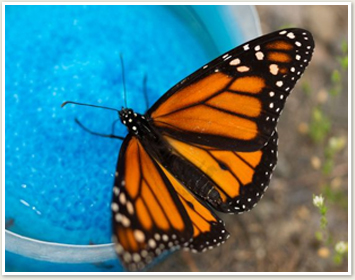 Cornell University provides exciting opportunities for undergraduates interested in exploring and conducting research in almost every aspect of the biological sciences. The biological sciences major at Cornell University brings together faculty members from the College of Agriculture and Life Sciences, College of Arts and Sciences, College of Human Ecology, and the College of Veterinary Medicine. This collaborative effort reflects the program’s extensive size and the diverse teaching and research interests of its faculty, evident in the offering of more than 380 biology courses and the flexible design of the undergraduate curriculum.
Cornell University provides exciting opportunities for undergraduates interested in exploring and conducting research in almost every aspect of the biological sciences. The biological sciences major at Cornell University brings together faculty members from the College of Agriculture and Life Sciences, College of Arts and Sciences, College of Human Ecology, and the College of Veterinary Medicine. This collaborative effort reflects the program’s extensive size and the diverse teaching and research interests of its faculty, evident in the offering of more than 380 biology courses and the flexible design of the undergraduate curriculum.
Biological sciences majors enroll in either the College of Agriculture and Life Sciences or the College of Arts and Sciences at Cornell University. Although the core coursework for the major is the same, students will need to fulfill distinct college requirements, leading to variations in the overall courses required to complete their degrees.
Based on individual goals, students shape their undergraduate journey within the biological sciences major by enrolling in one of the two colleges, adapting their core major requirements, and choosing one concentration from the thirteen possible options. Biological Sciences majors build a strong foundation in biology, chemistry, physics, and mathematics, progressing to advanced studies in genetics and biochemistry before delving into upper-level biology courses aligned with their chosen concentration. A significant proportion of biological sciences majors engage in research during their undergraduate tenure at Cornell. Students who want to graduate with honors must apply to the Honors Program in the biological sciences major by the end of their junior year, maintain a minimum cumulative GPA of 3.0, and produce a thesis based on original research conducted under the direct supervision of a Cornell faculty member.
The departments of Ecology & Evolutionary Biology, Microbiology, Molecular Biology and Genetics, Neurobiology & Behavior, the Plant Biology section of SIPS, and Biomedical Sciences participate in the major and minor, as does the Division of Nutritional Sciences. Research and teaching in biology at Cornell is not limited to these departments, however: there are over 300 biology faculty on the Ithaca campus alone, with more at Weill Cornell Medicine.
Faculty members are actively engaged in research at the frontiers of the subjects they are teaching, creating intellectual excitement and vitality that give students a genuine feeling of participation in scholarly undertakings. In the classroom, undergraduates hear about important discoveries, and they are also encouraged to be directly involved in this discovery by pursuing an independent research project. Cornell undergraduates are exposed to a broad diversity of biological problems and challenged to use a variety of investigative approaches to develop solutions.